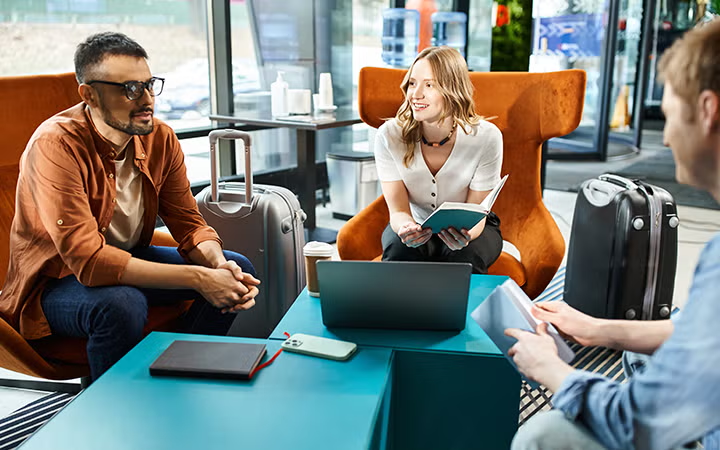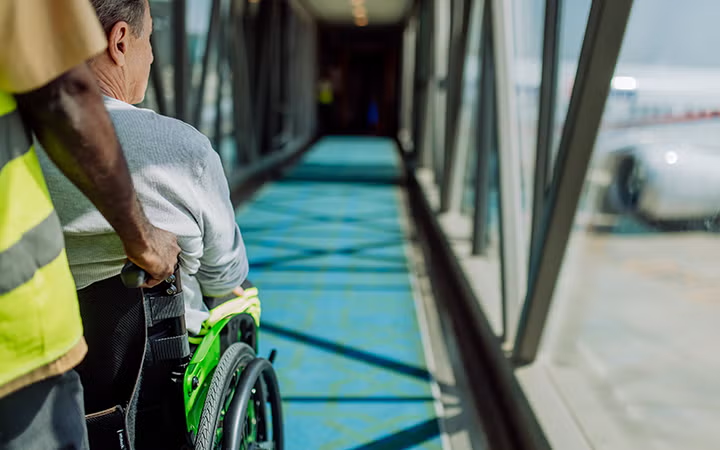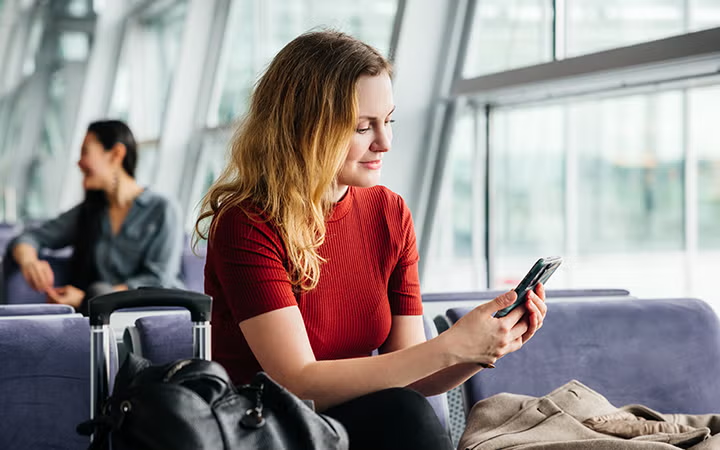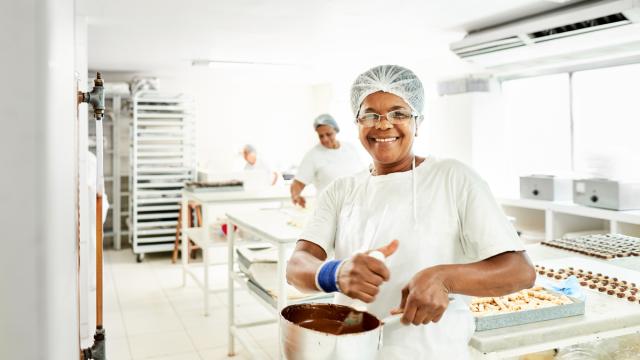CASE STUDY
Supporting Shell’s diverse business traveler needs

One of Shell’s business travel goals is to embed inclusivity into tools, booking processes, and culture. With a longstanding commitment to accessibility and meeting the needs of its employees, Shell wanted to overcome the barriers and challenges that some corporations and travel management companies (TMCs) often face when supporting individuals with diverse needs, including those with neurological, mental, physical, or chronic conditions.
Following fact-finding discussions with people with disabilities, other companies, and consultation within FCM, FCM Travel and Shell’s corporate travel department embarked on establishing an accessibility travel desk for Shell’s employees.
Identifying key moments… and one big consideration
It was a review of the entire traveler journey and conducting in-depth interviews across different business lines that kickstarted the ideas. The team identified 12 "moments that matter" in journeys, from information gathering to returning home.
“We clearly needed to enhance some elements and small touch points for those with a disability or neurodiverse requirements,” said Kyra van Egmond, Travel Manager EMEA at Shell. “And we learned quickly that travelers with the same requirements, e.g., wheelchair users, don’t necessarily want the same kind of service…so you can’t standardize."
One big consideration? Privacy. Health conditions can’t be requested or added to travel profiles.

What was launched for travelers
To overcome privacy restrictions, the team leaned toward asking for preferences instead. A mix of solutions including self-serve fact-finding and consultant support was launched.
We don’t need to understand why a request came in; it’s about providing a safe space for people to share what they’d require and it’s trust-based, said Kyra.
Here’s what was introduced to Shell’s travelers:

How it's helped travelers so far
While the accessibility desk is in its infancy, these are some of the examples of information and situations the team has been able to help with.
Temporary wheelchair user | Rooms of requirement | Eurostar |
|---|---|---|
| One of Shell’s leaders had a foot injury traveling to the USA and needed a wheelchair organized for them at the airport. | The knowledge base stores details on rooms that travelers may need, such as quiet rooms, sensory rooms, or appropriate facilities for breastfeeding mothers. | If a wheelchair user can’t get out of their wheelchair to sit in a seat, there’s a section in Eurostar’s First Class where a chair can be securely strapped in. |

“Feedback has been super positive. It’s been promoted in different communities and brought to the attention of the local general manager and senior leadership. People love that they’ve got that database, but they have that team there for them too.”
Kyra van Egmond, Travel Manager EMEA, Shell


